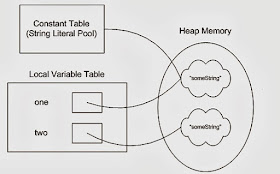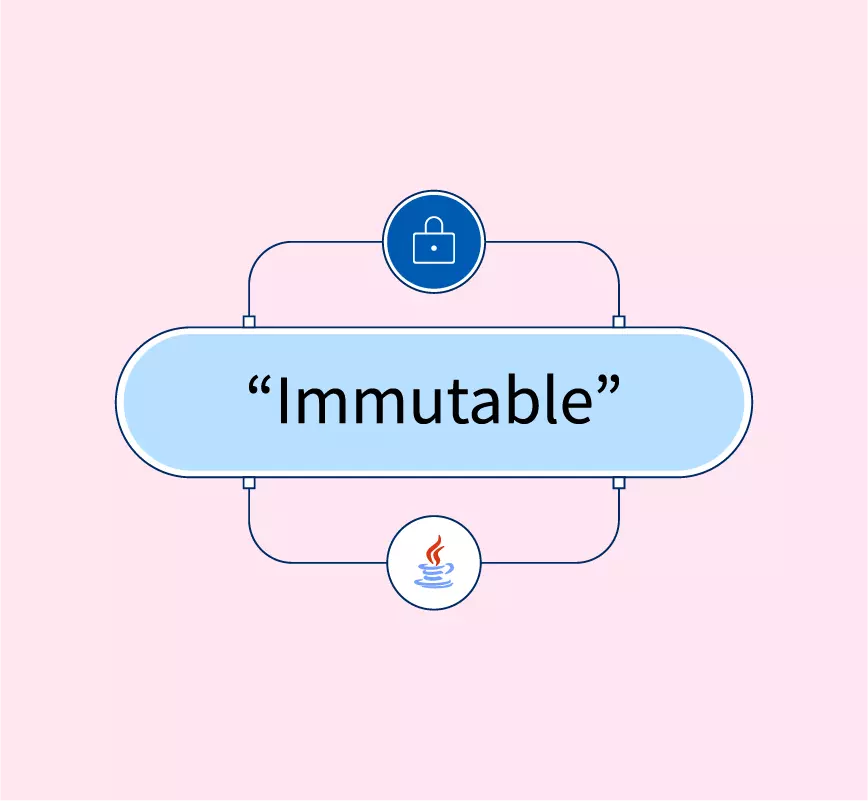Why Are Strings Immutable in Java? Key Factors and Advantages Clarified
Why Are Strings Immutable in Java? Key Factors and Advantages Clarified
Blog Article
Unalterable Strings: A Secret Element in Ensuring Information Consistency and Dependability
In the world of information monitoring, the relevance of immutable strings can not be overstated. These constant sequences of characters play a crucial duty in maintaining the integrity and accuracy of info within systems. By preserving a state of immutability, data consistency is guaranteed, cultivating a structure of dependability upon which important processes depend. The idea of immutable strings goes beyond simple formality; it is a linchpin in the complex web of information administration. As we explore the benefits, implementation techniques, and functional applications of unalterable strings, a more clear photo arises of their important nature in guarding the digital landscape.
The Principle of Immutable Strings
Unalterable strings, a basic principle in programs, describe strings that can not be customized once they are produced. In essence, as soon as a string value is appointed, any operation that appears to customize the string actually develops a brand-new string. This immutability ensures data consistency and reliability in applications, as it avoids unforeseen modifications to the initial data.
Benefits in Data Uniformity

Data consistency is essential in various aspects of software program development, consisting of data source management, multi-threaded settings, and distributed systems (Why are strings immutable in Java?). Unalterable strings contribute significantly to attaining this consistency by stopping data corruption as a result of concurrent access. In scenarios where several procedures or strings connect with the exact same data all at once, unalterable strings act as a safeguard against race problems and synchronization concerns
Furthermore, the immutability of strings streamlines debugging and screening procedures. With unalterable strings, designers can rely on that as soon as a string is established, it will continue to be unchanged, making it much easier to trace the source of errors and ensuring that examination situations create regular results. This dependability in information taking care of inevitably leads to a lot more stable and robust applications.

Implementing Unalterable Strings
Making certain the immutability of strings needs a thoughtful approach to their execution in software application advancement. One essential method is to develop string courses in a way that prevents adjustments when a string things is created. By making strings immutable, programmers can improve information consistency and reliability in their applications.
To implement immutable strings efficiently, programmers ought to prefer producing new string things instead of modifying existing ones. This practice guarantees that once a string is designated a worth, it can not be altered. In addition, any kind of procedure that shows up to customize the string must produce a new string with the wanted modifications rather than modifying the original.
Furthermore, utilizing unalterable strings can streamline concurrency administration in multi-threaded environments. Given that unalterable strings can not be altered after production, they can be safely shared amongst multiple threads without the danger of information corruption.
Role in Dependability Assurance
In software application development, the use of unalterable strings plays an important duty in ensuring the integrity of information operations. Immutable strings, as soon as produced, can not be changed, making certain that the data they stand for stays consistent throughout the application's execution. This immutability home supplies a degree of assurance that the data being refined will certainly not be inadvertently changed, resulting in unforeseen results or mistakes in the system.
By integrating unalterable strings into software application style, Check Out Your URL developers can boost the integrity of their applications by lessening the threats associated with mutable information - Why are strings immutable in Java?. Unalterable strings aid in protecting against information corruption or unplanned alterations, which can be specifically critical when handling sensitive information or when information stability is paramount
Furthermore, making use of immutable strings simplifies simultaneous handling, as several threads can securely accessibility and share string information without the danger of one string changing the web content while one more reads it. This facet adds dramatically to the general reliability of the software application system, ensuring consistent and foreseeable habits in information managing procedures.
Applications and System Integration
The smooth integration of immutable strings right into various applications and systems is essential for making sure durable data consistency and dependability across varied technical environments - Why are strings immutable in Java?. Unalterable strings play an important function in enhancing the integrity of data exchanges and communications within complicated software application ecological communities. By including unalterable strings right into applications, programmers can minimize the risks related to data tampering, unauthorized modifications, and unintended modifications, therefore fortifying the overall safety stance of the system
In the context of system assimilation, immutable strings offer as a foundational aspect for establishing protected interaction channels and facilitating seamless data transfers between different parts. Their immutable nature makes sure that information sent in between systems continues to be unchanged and proven, lowering the chance of disparities or mistakes that might compromise the integrity of the whole system. Furthermore, immutable strings can improve interoperability between disparate systems by giving a standardized format for information depiction, making it possible for much more effective data processing and exchange protocols across interconnected platforms. By embracing unalterable strings in applications and system integration processes, companies can strengthen their data facilities and promote the reliability and consistency of their information properties.
Conclusion
Finally, unalterable strings play a vital role in maintaining information consistency and integrity in various applications and system integrations. By making certain that strings can not be altered as soon as developed, the integrity of information is protected, decreasing the danger of inconsistencies and errors. Carrying out unalterable strings can significantly enhance the integrity of systems, eventually bring about more exact and trustworthy information handling.

Report this page